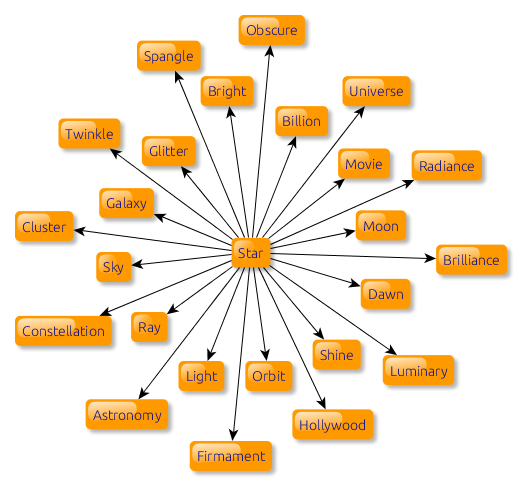Mock sample for your project: MotaWord API
Integrate with "MotaWord API" from motaword.com in no time with Mockoon's ready to use mock sample

MotaWord API
Version: 1.0
Integrate third-party APIs faster by using "MotaWord API" ready-to-use mock sample. Mocking this API will allow you to start working in no time. No more accounts to create, API keys to provision, accesses to configure, unplanned downtime, just work.
Improve your integration tests by mocking third-party APIs and cover more edge cases: slow response time, random failures, etc.
Description
Use MotaWord API to post and track your translation projects.
Other APIs in the same category

Semantria
Semantria applies Text and Sentiment Analysis to tweets, facebook posts, surveys, reviews or enterprise content.
Random Lottery Number generator API
fungenerators.com
Below is the documentation for the API calls. You can try them out right here.
NLPCloud
nlpcloud.io

Word Associations API
wordassociations.net
The Word Associations Network API allows developers to embed the ability to find associations for a word or phrase into their mobile apps or web services. Words are grouped by semantics, meaning, and psychological perception. The Word Associations Network API currently supports English, French, Spanish, German, Italian, Portuguese, and Russian vocabulary. Please register and subscribe to one of available tariff plans to get a valid API key.
Name Generation API
Fungenerators name generation API generates random names relevant to the given category. Lots of categories are supported with many variations supported. Click here to subscribe

DynamicDocs
ADVICEment's DynamicDocs API automates your document generation and creates dynamic, optimized, interactive PDFs. Write your templates in LaTeX and call the API with JSON data to get your PDFs in seconds.
The template files are stored in your dashboard and can be edited, tested and published online. Document templates can contain dynamic text using logic statements, include tables stretching multiple pages and show great-looking charts based on the underlying data. LaTeX creates crisp, high-quality documents where every detail is well-positioned and styled.
Integrate with ADVICEment DynamicDocs API in minutes and start creating beautiful dynamic PDF documents for your needs.
For more information, visit DynamicDocs API Home page.
The template files are stored in your dashboard and can be edited, tested and published online. Document templates can contain dynamic text using logic statements, include tables stretching multiple pages and show great-looking charts based on the underlying data. LaTeX creates crisp, high-quality documents where every detail is well-positioned and styled.
Integrate with ADVICEment DynamicDocs API in minutes and start creating beautiful dynamic PDF documents for your needs.
For more information, visit DynamicDocs API Home page.

FunTranslations API
Funtranslations API gives access to the full set of translations available at funtranslations.com so that you can integrate them in your workflow or an app. Click here to get details and subscribe . Here are the individual API links:
Morse code API
Morse code conversion API on the cloud. Translate to and from Morse Code.Click here to subscribe
Braille API
Braille conversion API on the cloud. Translate to Braille and get Braille results suitable for many display types.Click here to subscribe
Starwars Translation API
Ever wonder how to talk like Yoda? Well, use our API and let your APP/webpage speak like Yoda too.Click here to subscribe
Sith Translator API. Click here to subscribe
Cheunh Translator API. Click here to subscribe
Huttese Translator API. Click here to subscribe
Mandalorian Translator API. Click here to subscribe
Gungan Translator API. Click here to subscribe
Pirate Speak Translation API
Ahoy, matey. Let's get those land lubbers speak our tounge too! Our evergreen pirate speak tranlsator API.Click here to subscribe
Valley Speak Translation API
Our throwback Valspeak translations API.Click here to subscribe
Minion Speak Translation API
Our evil master following minion speak translations API.Click here to subscribe
Morse code API
Morse code conversion API on the cloud. Translate to and from Morse Code.Click here to subscribe
Braille API
Braille conversion API on the cloud. Translate to Braille and get Braille results suitable for many display types.Click here to subscribe
Starwars Translation API
Ever wonder how to talk like Yoda? Well, use our API and let your APP/webpage speak like Yoda too.Click here to subscribe
Sith Translator API. Click here to subscribe
Cheunh Translator API. Click here to subscribe
Huttese Translator API. Click here to subscribe
Mandalorian Translator API. Click here to subscribe
Gungan Translator API. Click here to subscribe
Pirate Speak Translation API
Ahoy, matey. Let's get those land lubbers speak our tounge too! Our evergreen pirate speak tranlsator API.Click here to subscribe
Valley Speak Translation API
Our throwback Valspeak translations API.Click here to subscribe
Minion Speak Translation API
Our evil master following minion speak translations API.Click here to subscribe



